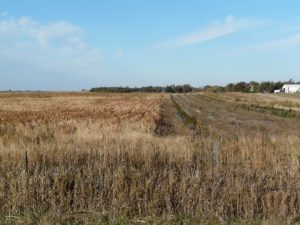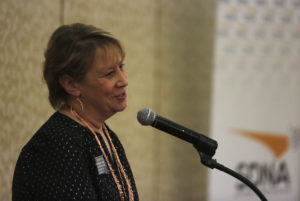
The South Dakota Stockgrowers Association is calling on South Dakota’s Congressional delegation to pass the Prime Act, or similar policies. In a letter to Senators Thune, and Rounds, and Representative Noem, the Stockgrowers asked for their support of The Prime Act, or similar legislation to allow sales of meat products at the retail level, using a state health and safety inspection, versus having to wait for federal inspection on those products.
“The current federal law already states that all state meat inspections, must be at least equal to federal requirements, so demanding a federal inspection in order to market our products seems redundant, and ridiculous,” says Stockgrowers Trade Committee Chairman, Ty Littau of Carter, SD.
The Stockgrowers have long been supportive of being able to differentiate their products, and feel the consumers, especially South Dakotans, would prefer their products, over those of unknown origins. They also feel The Prime Act will help the consumers identify, a locally raised product, generating more demand for their members products. SD Stockgrowers Association believes The Prime Act will lead to more options, and give producers more opportunities to market their cattle and beef.
The Stockgrowers also feel it can lead to ways local ranchers can help their communities. “Many times we have members who wish to donate beef to local schools or places in need, but due to the lack of finding federally inspected locker plants they run into a road block, and are unable to do so. The Prime Act will not only benefit producers, but will also benefit their local communities,” says SDSGA President Gary Deering.
The Prime Act is not a new idea. It has been tossed around on the Hill many times, but unfortunately has never gained much traction by the industry, or by those in Congress. With the increasing demand by consumers for knowing where food comes from, and as people seek less government control, the Stockgrowers believe that the Prime Act should be revisited and passed. They feel that this is common sense legislation that will provide support for livestock producers, will give the consumers a chance to buy locally, and helps local locker plants, all of which will lead to an economic boost throughout many small communities .
“The Prime Act is a win for many throughout our country, helping so many, hurting none. But, as important, it will not cost anything, and in fact, would even save our government money. That is the type of conservative legislation that should be passed by Congress,” adds Littau.
The Stockgrowers urges ranchers, consumers, locker plants, and communities across the nation to get behind The Prime Act, and get their congressional delegation to support the Prime Act.
Deering stresses, “It is not that often with legislation that we have an opportunity to do so much, to benefit so many people, and the Prime Act is an opportunity to do just that. Get in touch with the Stockgrowers office for more information on what can be done to help with this.”
South Dakota Stockgrowers Association can be reached at 605-342-0429 or by emailing office@southdakotastockgrowers.org.









